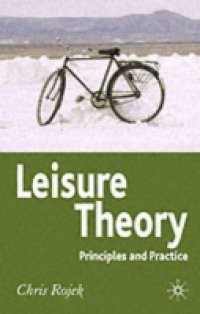Taking the student through issues involved in acquiring knowledge about leisure forms and practice, Chris Rojek demonstrates the key theoretical concepts involved in analysing leisure. His book provides a clear account of how representation operates to shape leisure behaviour throughout the life course. It takes issue with the commonsense view of leisure as connoting freedom, choice and self-determination, insisting instead on the situated character of leisure conduct and explaining the role of class, gender, race and status in moulding trajectories of leisure. The argument constantly relates leisure practice to the distribution of scarce economic, cultural and honorific resources, pinpointing the key regulative mechanisms shaping choice and practice. Throughout, a dry academic approach is scorned in favour of urging students to test theoretical propositions against real life patterns of behaviour and a guide to studying 'on-location' leisure behaviour is incorporated, as well as an agenda for future research and learning development.

